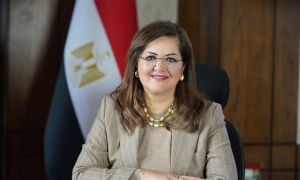President Donald Trump has taken significant steps to curb financial support to South Africa, claiming the country is engaging in what he describes as 'unjust and immoral practices' against its white minority population. His recent executive order freezing nearly $440 million in aid reflects rising tensions between the US and South Africa, heightened by recently enacted land reform laws.
The core of the matter lies with the Expropriation Bill, signed by South African President Cyril Ramaphosa, which empowers the government to seize land without compensation under specific circumstances. Trump, without substantiation, accused South Africa of widespread land confiscation, saying it is undertaking activities 'perhaps far worse' than mere confiscation.
"Terrible things, horrible things... the country's leadership is doing," Trump stated, justifying his abrupt move. The decision has sent shockwaves through South Africa, prompting responses from both sides of the political spectrum. Critics argue Trump’s comments are based on misinformation and disregard the historical and social contexts behind land reform.
Trump's actions are not entirely new. He previously raised concerns about South Africa's land reform initiatives back in 2018 during his administration. His attitude appears to resonate with the conservative Afrikaner lobby groups, including AfriForum, which advocate for the rights of the Afrikaner community and challenge what they term 'race-based laws.' Elon Musk, born in South Africa, has also ignited controversy by questioning Ramaphosa's policies, labeling them as 'openly racist ownership laws.'
Along with the aid freeze, the Trump administration has indicated support for Afrikaner refugees seeking to relocate to the US, amplifying fears among South African leaders of political motives behind his latest decisions. South Africa's Foreign Minister Ronald Lamola firmly declared, "There is no chance South Africa would withdraw its case against Israel at the ICJ," even as tensions mount over accusations against Israel related to the Gaza conflict.
With the growing backlash over the aid freeze, experts are concerned about the potential fallout for South Africa's economy, particularly as it is one of the largest beneficiaries of the Pepfar program, which focuses on HIV/AIDS treatment. While the US embassy has clarified not all Pepfar activities will cease, the future of broader US support looks bleak.
Analysts are closely watching the dynamics of the US-South Africa partnership, which has historically ebbed and flowed since the end of apartheid, with Mandela’s influence markedly shaping bilateral relations. The relationship has faced challenges with varying US administrations, and Trump's recent actions have raised the stakes considerably.
According to Donald MacKay, CEO of XA Global Trade Advisors, the US remains one of South Africa's key partners, contributing significantly to trade under the Africa Growth and Opportunity Act (Agoa), which grants duty-free access for eligible African products. Yet he warns, "While the US is important, it’s not South Africa’s closest trading partner," indicating room for shifting alliances.
South Africa exports minerals, vehicles, and metals worth approximately $2.7 billion under Agoa, but the upcoming review of this act, set for later this year, might redefine its trade standing. If the aid freeze continues, the US may see this as an opportunity to impose trade restrictions, leading to significant economic ramifications for South Africa.
Dr. Oscar van Heerden, from the University of Johannesburg, highlights the unprecedented nature of Trump's actions, representing the first time such overt retaliatory measures have been invoked. Both countries are now contemplating their next mayor moves amid increasing global shifts and competition from nations like China and India.
“The opening gambit has already been made by President Trump and Elon Musk,” cautioned van Heerden, stressing the importance for South Africa to carefully strategize its diplomatic responses moving forward. With South Africa presiding over the G20, President Ramaphosa has announced plans to engage with various global leaders to clarify national positions and bolster international ties.
The European Union has reaffirmed its commitment to South Africa, with EU Council President António Costa recently communicating support to Ramaphosa. This support could provide South Africa with alternate diplomatic channels amid growing tensions with the US.
Navigational challenges await South Africa as it reassesses its foreign relationships, especially with such unpredictable political currents coming from the US administration. Local experts suggest considering its economic resources as bargaining chips to negotiate future terms.
The international reaction and South Africa's strategic responses will be pivotal as the situation evolves, with business and political repercussions affecting not just the local population but also the broader region concerned about economic stability and intergovernmental relations.



